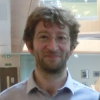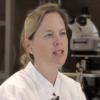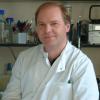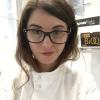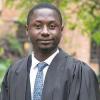Co-Chairs
Professor of Respiratory Biology
Co-Director, Cambridge Centre for AI in Medicine
Research Director and Honorary Consultant, Cambridge Centre for Lung Infection, Royal Papworth Hospital
Honorary Consultant, Respiratory Immunology service, Cambridge University Hospitals
Co-Director, Cambridge Infectious Diseases Interdisciplinary Research Centre
Department of Veterinary Medicine
Veterinarian, epidemiology with interests in the infection dynamics and control of zoonotic diseases in Africa and globally.
Steering Committee
Department of Plant Sciences
Head of Virology and Molecular Plant Pathology Group
My research interests include viral subversion of plant resistance, viral gene expression, plant-virus-insect vector interactions, and the effects of virus infection on interactions of plants with beneficial insects such as pollinators.
Department of Physics
Salmonella infection of macrophages; bacterial adhesion in airways; P.falciparum (Malaria) egress and invasion in red blood cells; gene expression noise in E.coli; new phenotipic responses to antibiotics; microfluidics/single cell imaging.
Department of Engineering
Engineering design: including process management, change management, healthcare design and inclusive design.
Programme leader
Statistical methods in epidemic modelling
PhD Student at Baker Group, CITIID, University of Cambridge
Typhoid and Paratyphoid fever in LMICs
Centre for Science and Policy (CSaP)
Strengthening the contribution academic research can make to improving public policy.
Professor of Respiratory Biology
Co-Director, Cambridge Centre for AI in Medicine
Research Director and Honorary Consultant, Cambridge Centre for Lung Infection, Royal Papworth Hospital
Honorary Consultant, Respiratory Immunology service, Cambridge University Hospitals
Co-Director, Cambridge Infectious Diseases Interdisciplinary Research Centre
Department of Veterinary Medicine
Host-pathogen interactions and the molecular basis of virulence.
Department of Chemical Engineering & Technology
Innovation of cheap diagnostics in developing countries.
Everitt Butterfield Fellow in Emerging Infectious Diseases
Department of Veterinary Medicine
Centre for the Study of Existential Risk
Interested in infectious diseases; epidemiology; global health; outbreak response; surveillance
Postdoctoral Researcher at Department of Genetics
Salje's group
Cambridge Digital Humanities
Combines research and teaching activities on misinformation, collective action and digital methods.
Professor of Bacterial Evolution, Department of Veterinary Medicine
The emergence, transmission and evolution of bacterial pathogens
Professor of Viral Immunology, Cambridge Institute for Medical Research
I use cutting-edge proteomics to identify and characterise novel aspects of innate antiviral immunity.
01223 767811
Department of Biochemistry
Regulation of microbial virulence and biofilms in Pseudomonas aeruginosa. Quorum sensing, anti-bacterials, stringent response.
Department of Veterinary Medicine
Veterinarian, epidemiology with interests in the infection dynamics and control of zoonotic diseases in Africa and globally.
Principal Investigators
Department of Pathology
Senior Lecturer in Molecular Parasitology
T. gondii genome sequence information to investigate basic properties of the host-parasite interaction.
Principal Investigator, MRC Career Development Award
Department of Veterinary Medicine
Associate Professor
Department of Pathology
Ubiquitin and ubiquitin-like pathways in malaria and other parasites
Department of Medicine, CITIID.
Molecular microbiologist; enteric infections in developing countries with an emphasis on Norovirus, Shigella spp. and Salmonella Typhi.
Senior Research Associate, Bye Fellow at Murray Edwards College
Intersection of economy, society and policy; previously health focus on the ‘Humanitarian Crises, Population Displacement and Epidemic Diseases, 1901-2010’ project.
Wellcome Sanger Institute
Genomics of bacterial pathogenesis with a particular focus on pneumonia and meningitis
Department of Veterinary Medicine
Senior Lecturer in Molecular Virology
Immune response to persistent viral infections; pathogenesis of gastrointestinal viruses.
01223 337609
Department of Pathology
Characterization of malarial transmission and the design of anti-parasitic transmission-blocking interventions
Department of Biochemistry
Structural biology, bioinformatics and drug discovery
Assistant Professor of AI and Disease, Department of Pathology and Department of Genetics
We use computational genomics, AI, and mathematical modelling to study the impact of antimalarial agents on the DNA replication and repair of malaria parasites.
Department of Biochemistry
Molecular mechanisms underpinning RNA-controlled self-assembly of multi-segmented viral genomes.
Viral genome packaging, virus assembly, biomolecular condensates, RNA dynamics and RNA chaperones, rotaviruses.
Department of Pathology
Translational control; ribosomal frameshifting and readthrough; virus gene expression; RNA structure and function
44-1223-336914
Department of Physics
Development of Therapeutics for Bacterial Infectious Diseases, including Traumatic Injury Infection and Biothreat Agents
Wellcome Sanger Institute
Intestinal microbiota; evolution of intestinal spore-forming bacteria in human gut.
Department of Veterinary Medicine
Innate Immunity; host recognition of infection; immunopharmacology
01223 766232
Group Leader, Wellcome Sanger Institute
Within host evolution of cystic fibrosis pathogens
Department of Veterinary Medicine
Gastrointestinal helminths, host-parasite interactions, high-throughput sequencing technologies.
Assistant Professor at Department of Engineering, University of Cambridge
I work on computational methods for inference problems, including models of things (i.e. disease) spreading across networks.
Department of Plant Sciences
Head of Virology and Molecular Plant Pathology Group
My research interests include viral subversion of plant resistance, viral gene expression, plant-virus-insect vector interactions, and the effects of virus infection on interactions of plants with beneficial insects such as pollinators.
Department of Biochemistry
Molecular Cell Biology of Trypanosomes
+44 1223 333683
Wellcome Trust Clinical Research Career Development Fellow, Department of Medicine
Honorary Consultant Immunologist
PI3K delta signalling in infection and immunity in humans and mouse models
Department of Chemical Engineering and Biotechnology
Bacterial spore structure and germination; structural biology (protein crystallography); coronavirus testing and inactivation
We study bacterial spores (e.g. Bacillus and Clostridium), with a focus on their assembly, structure, and germination.
Department of Pathology
Translation control; gene expression mechanisms; ribosome profiling; RNA structure and function
Department of Physics
Salmonella infection of macrophages; bacterial adhesion in airways; P.falciparum (Malaria) egress and invasion in red blood cells; gene expression noise in E.coli; new phenotipic responses to antibiotics; microfluidics/single cell imaging.
Department of Engineering
Engineering design: including process management, change management, healthcare design and inclusive design.
Clinician scientist at Department of Pathology
Working on HIV neuropathogenesis and persistence in the brain
Department of Plant Sciences
Mathematical modelling of the spread, detection, evolution and control of crop and tree diseases.
Infectious disease mortality in historical populations; smallpox; tuberculosis ; influenza; puerperal infections
Programme leader
Statistical methods in epidemic modelling
Principal Investigator, Cambridge Institute Medical Research (CIMR)
Molecular mechanisms of host-pathogen interactions during bacterial infection
UKRI Future Leaders Fellow / Sanger Career Development Fellow, Wellcome Sanger Institute
Population genomics of drug selection in two veterinary parasites, Haemonchus contortus and Teladorsagia circumcincta
Senior Research Associate (Mathematical & Computational Biology), Department of Chemistry
AI Researcher & Mathematical Modeller
+44 1223 339381
Professor of Respiratory Biology
Co-Director, Cambridge Centre for AI in Medicine
Research Director and Honorary Consultant, Cambridge Centre for Lung Infection, Royal Papworth Hospital
Honorary Consultant, Respiratory Immunology service, Cambridge University Hospitals
Co-Director, Cambridge Infectious Diseases Interdisciplinary Research Centre
Senior University Lecturer in Cellular & Molecular Microbiology
Head of the Division of Microbiology & Parasitology, Department of Pathology
Niccoli Fellow in the Natural Sciences & Director of Studies, Queens' College
Department of Plant Sciences
Epidemiological modelling to predict the spread of plant disease epidemics and to identify and optimise economically and ecologically sustainable strategies for disease management.
A consultant in infectious diseases with an interest in primary and secondary immunodeficiencies and transplantation.
Department of Applied Mathematics and Theoretical Physics (DAMTP)
Mathematics of infectious diseases,viral bioinformatics,influenza modelling
Department of Pathology
Virus-host interactions, with particular emphasis on noroviruses.
Professor of Virus:Host Interactions
Department of Veterinary Medicine
Host-pathogen interactions and the molecular basis of virulence.
Stanley Elmore Research Fellow at Sidney Sussex College
Associated PI in the Department of Medicine
I research the molecular interactions between retroviruses and human cells
Department of Chemical Engineering & Technology
Innovation of cheap diagnostics in developing countries.
Everitt Butterfield Fellow in Emerging Infectious Diseases
Department of Veterinary Medicine
Centre for the Study of Existential Risk
Interested in infectious diseases; epidemiology; global health; outbreak response; surveillance
Career Development Fellow - UKRI Innovation Fellowship, at Wellcome Sanger Institute
Senior Research Associate, Department of Medicine
Honorary Fellow in the Department of Public Health and Primary Care
Genomics of inflamation and immunity. Staphylococcus aureus in humans and animals.
Comparative Pathology of Viral Infections
Head of the Lab of Viral Zoonotics
Contact: jlh66@cam.ac.uk
Professor in Microbial Genomics & Veterinary Science
Director of Studies in Clinical Veterinary Medicine (Churchill College)
+44 1223 337636
Professor at Department of Pharmacology
Sheild Chair of Pharmacology
Protein Technologies for Therapeutic and Vaccine Design
We are interested in the molecular biology of the remnant chloroplast (apicoplast) in apicomplexan parasites (e.g. Plasmodium)
Research Group Leader, Virology, Department of Pathology
Understanding the role of Zika virus genome translation in viral pathogenicity and disease
The evolution and genetics of insects and their pathogens
01223 333175
Senior Lecturer in Biomedical Science and Associate Principal Investigator
Public policy evaluation; Health economics
Group Leader: Vector-parasite interactions
We use genomic approaches to better understand mosquito populations and parasite transmission dynamics.
Department of Veterinary Medicine
Professor of Infection and Immunity
Bacterial pathogenesis, immunology, vaccines and antibiotics.
Wellcome Trust Research Fellow
Director of Studies for History and Philosophy of Science, Magdalene College
Senior Lecturer, Department of Pathology
Basic biology of the human malaria parasite and impact of this biology on virulence. Molecular genetics and cell biology
Affiliated researcher, McDonald Institute, Department of Archaeology
Hospital Consultant (specialist) in NHS
Wellcome Trust Senior Research Fellow
Reader in Virology and Immunology
01223 267282
Professor of comparative oncology and genetics
Teaching Associate, Department of History and Philosophy of Science
I’m a historian of modern science and medicine, with core interest in histories of animal research, bacteriophage therapy and animal quarantines.
University Lecturer, Chemical Engineering and Biotechnology
I develop in vitro models of the gut-brain axis with integrated electronic monitoring.
Senior Lecturer, Anglia Ruskin University
Identifying the prevalance of AMR in wildbirds, use of bacteriphages as a biocontrol agent to tackle AMR
Phage biology, Metagenomics, zoonotic pathogens
My interests are sustainability of HIV services in Africa, fungal infections in Uganda and HIV/STI management
Professor of Bacterial Evolution, Department of Veterinary Medicine
The emergence, transmission and evolution of bacterial pathogens
Clinical and research interests in inflammation, sepsis , nutrition and the relationship between gut microbiota and the host
Director, COVID-19 genomics UK Consortium (COG-UK) and Professor of Public Health & Microbiology
Senior Research Associate
Department of Medicine
University of Cambridge
Research Fellow in Animal Parasitology at Christ’s College, University of Cambridge.
Research Group Leader in Computational Biology at the Department of Pathology, University of Cambridge.
Structure and ligand-guided development of novel small molecule leads against druggable microbial proteins
We are interested in understanding the pathogenesis of tuberculosis and the basis of vastly different susceptibilities to this disease.
Cell autonomous innate immunity, i.e. the ability of individual cells to defend themselves against infection
Cambridge Institute of Medical Research (CIMR)/Department of Medicine
High throughput approaches to understand the biology of malaria parasites and prioritise new drug and vaccine targets
Department of Physiology, Development and Neuroscience.
Trafficking and processing of bacterial proteins by mammalian cells.
Professor of Protein Crystallography
Develop methods for X-ray crystallography
01223 336500
Royal Society sponsored Daphne Jackson Fellow, Department of Physiology, Development and Neuroscience, Cambridge
University Assistant Professor, Wellcome Trust Senior Research Fellow
Department of Pathology; Department of Biochemistry; CIMR
Cell biology of obligate intracellular bacteria
Department of Genetics
Applied public health research, especially with regards to the spread of infectious pathogens, and sitting at the interface of mathematical modelling, genetics, population biology, big data, public health and field-based epidemiology.
Senior Research Fellow, Department of Zoology
What I do: I am developing methodologies to detect, isolate, sequence and match ancient antibodies (degraded immunoglobulin proteins)
Research Interests: Immunology, protein degradation, ancient DNA, palaeoproteomics, infectious diseases
Gatsby Research Group Leader
We study plant processes underlying the accommodation of beneficial and pathogenic microbes.
Department of Zoology
Evolution and population dynamics of antigenically variable pathogens, particularly influenza viruses but also malaria, HIV, and HCV.
Head of Department of Pathology
Poxviruses, specifically vaccinia virus, the live vaccine used to eradicate smallpox.
Senior Lecturer in Molecular Virology
Fellow of Queens' College (Part 1A MIMS supervisor)
Biological Safety Officer (Dept. Vet Medicine)
(01223) 339554 (Vet medicine) (01223) 330180 (Queens')
1. Senior Program Officer, Bill and Melinda Gates Foundation
2. Honorary Consultant in Infectious Diseases & Microbiology, Addenbrooke's Hospital
3. Honorary Senior Visiting Fellow, University of Cambridge
Professor of Global Health, Department of Veterinary Medicine
Director of Cambridge-Africa, Department of Pathology
Honorary Epidemiologist at UKHSA
Fellow at Hughes Hall
Professor of Molecular Pharmacology (grade 11)
Focus on Antimicrobial Resistance research
01223-765295
Molecular Cell Biology and Evolution of Apicomplexan Parasites
+44 (0)1223 766057
Professor of Viral Immunology, Cambridge Institute for Medical Research
I use cutting-edge proteomics to identify and characterise novel aspects of innate antiviral immunity.
01223 767811
Wellcome Trust and Royal Society Henry Dale Fellow
Principal Investigator
01223 766247
Department of Biochemistry
Regulation of microbial virulence and biofilms in Pseudomonas aeruginosa. Quorum sensing, anti-bacterials, stringent response.
Department of Veterinary Medicine
Host-microbial interactions, mucosal immunology, bacterial infection and immunity, intestinal-health related research.
Department of Veterinary Medicine
Veterinarian, epidemiology with interests in the infection dynamics and control of zoonotic diseases in Africa and globally.
Digital Epidemiology: Modelling of Epidemic Spread using Human Mobility Data from Sensors and Mobile-Phones
01223763743
David Phillips Fellow and Group Leader (Department of Chemistry)
Semi-artificial photosynthesis, (photo)electrochemistry, chemical biology, materials chemistry, 3D-printing, biofilm chemistry
Antifouling and biofilm research in the context of anti-microbial resistance
Postdoctoral Researchers
Postdoctoral Scientist at MRC Laboratory of Molecular Biology
Leo James Group
Senior Research Associate, Department of Veterinary Medicine, U. of Cambridge
Postdoctoral researcher, Department of Veterinary Medicine
Role of the complement system in health and disease
Postdoctoral Scientist, Pathogen Dynamics Group, Department of Genetics
What I do: I study the dynamics of within-host immune response to Dengue.
Keywords: Infectious disease dynamics, Bayesian statistics, Mathematical models
Postdoctoral (SEED) Fellow, Wellcome Sanger Institute
Evolution, expression, and functions of novel and uncharacterised genes in Enterobacteriaceae and beyond.
Department of Veterinary Medicine
Antimicrobial resistance mechanisms in Staphylococcus aureus and other clinically important bacterial pathogens
Senior Research Associate, Bye Fellow at Murray Edwards College
Intersection of economy, society and policy; previously health focus on the ‘Humanitarian Crises, Population Displacement and Epidemic Diseases, 1901-2010’ project.
Postdoctoral Fellow, Parasites and Microbes Programme, Wellcome Sanger Institute
Molecular Microbiology, Bioinformatics, Phylogenetics, Phylodynamics, Molecular/Genomic Epidemiology, Genomic Surveillance. Sexually Transmitted Infections, Neglected Tropical Diseases, Global Health.
Postdoctoral Researcher, Baker Lab, Department of Genetics
What I do: Analysis of AMR emergence in Shigella population through genomics and statistical modelling
Research Interests: Genomic epidemiology and evolution of pathogens. Statistical modeling, software development for outbreak reconstruction.
Senior Statistician in the Statistics, Modelling, and Economics Department in the National Infection Service of Public Health England.
Development of real-time systems for the tracking of pandemic influenza outbreaks.
Visiting worker at Prog De Angelis' group.
Research Associate, Department of Medicine
Human genetic factors contributing to the persistent carriage of Staphylococcus aureus
Research Associate, Sarris Group, Department of Physiology, Development and Neuroscience, University of Cambridge
Research topic: Innate immunity
Research interests: Immunology, Cell Biology, Infectious Diseases
Postdoctoral Research Associate, Department of Pathology
Virus discovery in public RNA-seq datasets
Genomics, virus evolution, endogenous viruses
Postdoctoral Fellow, Department of Veterinary Medicine
I use functional genomics to study AMR and Host-pathogen interactions in Enterobacteriaceae.
Postdoctoral Scientist, at Cambridge Institute for Medical Research (CIMR)
Postdoctoral fellow, Wellcome Trust Sanger Institute
Developing new single cell sequencing technologies that work on thousands of cells in parallel
Postdoctoral scientist, Ferguson Lab, Department of Pathology
I compare the innate immunity between humans and various livestock animals in response to zoonotic bacterial and viral pathogens.
Research Associate in pathogen evolution, at Pathogen Genomics and Evolution Lab
Department of Veterinary Medicine
Postdoctoral scientist, PDU, Department of Genetics
I develop statistical and mathematical models to understand the transmission dynamics of pathogens and identify optimal control strategies.
Research Associate, Medicine
I have particular interest in understanding susceptibility to tuberculosis (TB) and mycobacterial infection.
Research Associate in Microbial Genomics, Department of Veterinary Medicine
Academic Clinical Fellow in Infectious Diseases, at Wellcome Trust Sanger Institute
Research Associate at Floto Lab, Department of Medicine
Functional Genomics
PhD Student, MRC Biostatistics Unit
Model Hepatitis C virus infection and treatment impact using serological surveillance data.
Postdoctoral Scientist, Department of Genetics
My work involves using mathematical models to understand drivers of dengue transmission, assess future epidemic potential, and evaluate the potential impact of interventions.
Keywords: Mathematical modelling, Arboviruses, Forecasting, Serology
Postdoctoral Research Fellow, Bryant Lab, Wellcome Sanger Institute
Within host pathogen evolution during chronic infection
Department of Veterinary Medicine
Graduate Student
Disease dynamics and ecological drivers, particularly of bat-borne viruses and other emerging pathogens.
Postdoctoral fellow (Marie Currie Sklodowska Action)
Bacterial genomics and evolution group, Wellcome Trust Sanger Institute
Everitt Butterfield Fellow in Emerging Infectious Diseases
Department of Veterinary Medicine
Centre for the Study of Existential Risk
Interested in infectious diseases; epidemiology; global health; outbreak response; surveillance
Postdoctoral Researcher at Department of Genetics
Salje's group
Senior Bioinformatician at Wellcome Trust Sanger Institute
Data analysis and Visualisation on GPS and JUNO Project
Division of Infectious Disease, Department of Medicine
I work on understanding the nature of the T cell mediated response to Cytomegalovirus infection.
Research Associate, Department of Pathology
Covid-19 Genomics (COG-UK) consortium member
Novel sensing mechanisms of non-enveloped viruses.
Project Manager and Principal Bioinformatician at Wellcome Sanger Institute
Comparative genomics of Staphylococcus aureus
Postdoctoral Research Associate at Centre for the Study of Existential Risk
Research Fellow (JRF) in Emerging Infectious Diseases, Department of Veterinary Medicine
Outbreak surveillance and response systems, particularly those in Sub-Saharan Africa.
Research Associate
Integration of genetic and spatial data to better understand the spread, maintenance and control of pathogens.
Research Fellow, Department of Zoology
Social evolution and virulence in parasites by way of experimental evolution of various strains of bacteria and bacteriophages
Project Manager / Principal Bioinformatician, Wellcome Sanger Institute
Genomics, bacterial diseases, LMIC, antimicrobial resistance
Research Associate, Department of Biochemistry
Structural and functional characterization of membrane transporters related to virulence and drug resistance from Mycobacteria
Senior Clinical Research Associate, Addenbrooke's Hospital
Involved in translational research of infectious disease and development of new diagnostic assays within the NHS.
Postdoctoral Scientist at CRUK Cambridge Institute
Developing molecular diagnostics, including NGS for infectious disease identification and epidemiological studies - particularly healthcare-associated infections.
Deployment of rapid molecular diagnostics in resource-limited settings.
Research Associate, Department of Veterinary Medicine
Research Interests: Diphtheria microbiology and probiotic research
Glycoprotein structural studies and phylogenetic analysis to study evolutionary virology.
Postdoctoral researcher, Department of Biochemistry
My research utilises proteomics to better understand the interactions between African trypanosomes and their hosts.
Research associate and administrator in the Pathogen Evolution group, Department of Zoology
Influenza, vaccines
Postdoctoral scientist, Veterinary Medicine
Metagenomics, human gut microbiome, phages, bioinformatics
Postdoctoral Scientist, MRC Toxicology Unit
Interests: investigating design, synthesis, and toxicity of RNA-based/mRNA/LNP therapeutics
Postdoc, Naomi McGovern group, Pathology
I investigate cytomegalovirus infection during pregnancy.
Keywords: biosecurity, global health, natural killer cells, placental biology
Research Associate at MRC Biostatistics Unit, University of Cambridge
Clinical Research Associate, Eastern Region Public Health Observatory, Institute of Public Health.
A public health professional with 5 years of experience in health care services, global health, data analysis, and research.
Research Associate at the Cambridge Institute for Medical Research
Host-virus Interactions, Innate Immune responses and signalling, DNA and RNA viruses kinetics and host sensing. Genetics, Proteomics and RNA-Seq.
Research Associate at De Angelis group, MRC Biostatistics Unit, University of Cambridge
Research associate/Postdoctoral Scientist
Ken Smith group, Department of Medicine
Development of adaptive response to pathogens and autoimmune diseases
Postdoctoral Scientist, Department of Physics
Uses nanomagnetic tools to overcome AMR.
Senior Research Associate, Department of Medicine
Analysis of Human Cytomegalovirus Latency
Investigator Statistician
in the "Statistical methods in epidemic modelling" programme
MRC Biostatistics Unit
Department of Veterinary Medicine
Postdoctoral Research Associate assisting Professor Mark Holmes
Research Associate, Department of Medicine
Translating pathogen genomics into clinical and public health microbiology, evolution and transmission of pathogenic enterococci.
Postdoctoral Fellow at Marcus Lee Group, Wellcome Sanger Institute
Transcriptional regulation of drug resistance in Plasmodium falciparum
Senior Staff Scientist, at Wellcome Sanger Institute
Host-parasite interactions in parasites such as malaria and whipworm using nextgen sequencing and informatics
Royal Society sponsored Daphne Jackson Fellow, Department of Physiology, Development and Neuroscience, Cambridge
Senior Staff Scientist, at Wellcome Sanger Institute
Development of functional genomic approaches for the blood flukes schistosomes, and the study of helminth-associated neoplasms
EBPOD Postdoctoral Fellow, at EMBL-EBI
My research focus is the translational application of bacterial whole genome sequencing in clinical environments.
Research Associate, Department of Medicine
Research topic: Mutational spectra and evolution of pathogens
Postdoctoral Research Fellow, at Wellcome Sanger Institute
What I do: Molecular epidemiology of Mycobacterium tuberculosis and non-tuberculous mycobacteria
PhD Student, Chemical Engineering and Biotechnology
Local production of cheap and rapid diagnostic tools for the detection of malaria and leptospirosis.
Department of Pathology
Deciphering actin signalling mechanisms hijacked by numerous pathogens to gain entry and establishing systemic infection. Bacteriology, Signalling, Neglected Tropical Diseases, Salmonella, Shigella.
Research Associate, Department of Genetics
The study of the long-term evolution of dengue virus and the drivers of dengue transmission processes.
Clinical Lecturer in Virology, Department of Pathology
Mathematical analyses of viral genomic data to predict function and drug targets
Department of Veterinary Medicine
Molecular microbiologist using glycoengineering approaches to develop vaccines to prevent bacterial disease in chickens
Postdoctoral Research Associate, Department of Pathology
Working on RNA regulatory structures within RNA viral genomes
Research Associate, Hollfelder Group, Department of Biochemistry
Synthetic biology and microfluidics
PhD student leading the canine transmissible venereal tumour (CTVT) project
Senior Research Associate at Centre for the Study of Existential Risk
Postdoctoral Research Associate, Department of Biochemistry
I work on the structural biology of plastic degrading enzymes
Postdoctoral fellow, Department of Veterinary Medicine
Pathogen genomics; Streptococcus pneumoniae (pneumococcus) and various Mycobacterium species.
Research Associate, Department of Zoology
Mathematical modelling of biological systems, dynamical systems
Postdoctoral Scientist, at Wellcome Sanger Institute
What I do: Tackling the role of persistent viruses in cancer predisposition.
Postdoctoral scientist, Wellcome Sanger Institute
Understand the evolution of vaccine preventable pathogens causing infections in children
Research Interests: Genomic epidemiology and antimicrobial resistance
Research associate, Department of Genetics
Research Associate studying the impact of antigenic and genetic diversity of dengue virus (DENV) on driving DENV's transmission and disease risks.
Animal pathogens, vaccine, antimicrobial resistance and functional genomics
Graduate Students
PhD Student, at the Department of Veterinary Medicine
Epidemiological and Mathematical Modelling, Disease Dynamics Unit
Emergency medicine doctor
Department of Sociology, University of Cambridge
Graduate Student Researcher at MRC Biostatistics Unit
I am a medical doctor and a graduate student in Population Health sciences, specializing in Infectious Diseases.
PhD student at Department of Veterinary Medicine
Population Genetics and Transposon Mutagenesis of the Canine Pathogen Streptococcus canis.
Research Interests: Epidemiology, genomics, ancient genomics, evolutionary biology, Streptococcus, One Health.
PhD Student at MRC Biostatistics Unit – Theme: Statistical methods Using data Resources to improve Population Health (SURPH)
PhD Student at the Department of Biochemistry
Biofilm regulation in Pseudomonas aeruginosa
PhD Student at Wellcome Sanger Institute
Exploring virulence and pathogenesis of cholera through phylogenetics, functional genomics, and immunology.
Application of novel mass spectrometry methods for the rapid identification of bacteria and AMR directly from clinical samples
PhD student at Lee Group, Wellcome Trust Sanger Institute
Parasitology, drug resistance, biochemistry
PhD student at Department of Paediatrics
Paediatric intensive care fellow
MPhil student, Population health sciences
Student interested in AMR research, aiming to increase quantitative modelling skills
PhD Student at Baker Group, CITIID, University of Cambridge
Typhoid and Paratyphoid fever in LMICs
PhD Student @ Veterinary Medicine
Research Interests: Virology, immunology, infectious diseases, epidemiology, vaccines.
PhD Student, at Wellcome Sanger Institute (Bentley) and Department for Veterinary Medicine (Almeida)
What I do: Explore diversity and functionality of the respiratory microbiome
Keywords: Microbiome, Next Generation Sequencing, Proteomics
PhD Student, Department of Medicine/Chemistry
What I do: Fragment-based drug discovery against Mycobacterium abscessus
Research Interests: Structural-guided fragment-based drug discovery against Mycobacterium abscessus and Mycobacterium tuberculosis
Gates Cambridge PhD student in the Disease Dynamics group of DAMTP, interested in mathematical evolutionary epidemiology of infectious diseases.
Department of Applied Mathematics and Theoretical Physics (DAMTP)
PhD Student, Department of Veterinary Medicine
Infectious disease modelling and policy
PhD student in Epidemiological and Mathematical Modelling
Department of Biochemistry
PhD student at Wellcome Trust Sanger Institute
I study the role of lncRNAs in Plasmodium
PhD Student in Pathogen Biology and Evolution
Department of Pharmacology
Keywords: Bacterial multidrug transporters; Antimicrobial Resistance
PhD student, Department of Veterinary Medicine, University of Cambridge
Mechanism of mecA mediated the susceptibility of MRSA to β-lactam antibiotics
PhD Student
Using mathematical models to evaluate and inform immunisation strategies with MenAfriVac in the African meningitis belt
Research Assistant, Department of Medicine
Genomics, AMR and rapid diagnostics of enteric pathogens.
PhD Student, Department of Biochemistry
Investigating small RNAs role in inter-species interactions of the human pathogen Pseudomonas aeruginosa
PhD Student at European Bioinformatics Institute EBI-EMBL
Lees Group (Pathogen Informatics and Modelling)
Genomic epidemiology, mathematical models for pathogen transmission and evolution.
PhD candidate
Department of Biochemistry
Structure-guided drug discovery to find novel therapies for leprosy
PhD Student at Baker's lab, Department of Medicine/CITIID, University of Cambridge
Monoclonal antibody therapies for the treatment of Acinetobacter baumannii
PhD student, Department of Biochemistry
Polymicrobial infections and biofilm formation in human airway infection scenarios
PhD Student, Smith group, Department of Zoology
I use computational methods to study vaccines against evolving viruses (SARS-CoV-2, Influenza)
PhD Student, Epidemiological and Mathematical Modelling
Department of Veterinary Medicine
MD, consultant in Public Health
Pathogen Dynamics Group, Department of Genetics, University of Cambridge
PhD Student, Duque-Correa Lab, Wellcome-MRC Cambridge Stem Cell Institute
PhD Student at Department of Pharmacology
Structural and Functional Studies on Multidrug Efflux Pumps
PhD Student, Nick Thomson's group, Wellcome Trust Sanger Institute
I investigate the global databases of SARS-CoV-2 sequencing to elucidate the mechanisms by which the virus maximizes the utility of its compact genome.
PhD Student, Centre for Pathogen Evolution, Dept of Zoology
I study the predictability of influenza and SARS-CoV-2's antigenic evolution using phylogenetic and (wet lab) experimental methods
PhD Student, Baker's Group, Department of Genetics
I research bacterial genomic surveillance data and develop methods to detect AMR threats
Keywords: microbial genomic surveillance, epidemiology, microbiome, antibiotics, therapeutics
PhD Student, Disease Dynamics Group, Department of Applied Mathematics and Theoretical Physics
Spatial modelling of infectious diseases
Associated Professionals
Research Assistant, Clinical School
I work on elucidating the basis of S. aureus carriage in the human nasopharynx.
Research Assistant at Cambridge Institute for Medical Research (CIMR)
Host-pathogen cell biology of obligate intracellular bacteria
Research Assistant at CIMR, Rayner Group
Senior Scientific Programme Manager for Joint UNIversities Pandemic and Epidemiological Research (JUNIPER) Consortium
Department of Applied Mathematics and Theoretical Physics, University of Cambridge
Previous Director of the Wellcome Unit for the History of Medicine, Oxford
A writer of books on infectious diseases
Research Assistant
Whole genome sequencing of MRSA, Pseudomonas aeruginosa and Clostridium difficile from patient samples
Technical Specialist at Genomic Surveillance Unit
Wellcome Sanger Institute
Visiting scientist at Department of Genetics. Consultant for Becton Dickinson, the Foundation for Innovative New Diagnostics (FIND), the TB Alliance, and the World Health Organization.
Research Assistant, Department of Medicine
The usefulness of whole genome sequencing in tracking MRSA outbreaks and transmission events.
Group Leader at Quadram Institute
Epidemiology, evolution and dynamics of foodborne and zoonotic bacteria, with a particular focus on antimicrobial resistance (AMR)
Veterinary Epidemiologist, Department of Veterinary Medicine
Equine Infectious Disease Surveillance
Senior Staff Scientist, at Pathogens and Microbes, Wellcome Trust Sanger Institute
Group Leader in the Department of Genetics, Evolution and Environment, UCL
Teaching Associate, Department of History and Philosophy of Science
I’m a historian of modern science and medicine, with core interest in histories of animal research, bacteriophage therapy and animal quarantines.
Programme coordinator for the Cambridge Centre for Physical Biology
DAMPT, University of Cambridge
Assistant Director for Biological Sciences & EU Matters, RO
Research support for School of Biological Sciences and EU funding
Research Assistant at Carriage Project - Peacock Group
Department of Medicine, University of Cambridge
Startup founder, Department of Physics
I'm developing a 10-minute point-of-care, sample-to-answer test for pathogen and AMR identification, by firstly building the world's fastest portable PCR machine.


































































